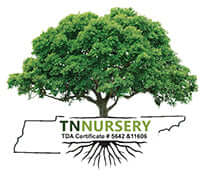Plants Perfectly Selected For Tennessee

Share
The people of Tennessee understand that plants are the lifeblood of their state. With a great climate for gardening, hot summers, mild winters, and long growing seasons, you can grow delicious fruits and vegetables, enchanting flowers, and sturdy trees.
Although the advantages of the climate and land are many, you still need to choose the best plants that suit TN. This guide will help you pick the best plant to take home with you.
Shade Trees For Tennessee
Shade trees are a worthy investment for your yard. They add beauty to your space, and they also offer a convenient way to keep cool during the summer. Most trees are fast growing with a wide canopy and grow quite tall. Lucky for you, there are many native species to choose from, here are two of the best.
The Red Maple - It is an all-time favorite for many owing to its bright orange and red fall colors and drought tolerance ability. It is the perfect choice for a TN garden that could use a pop of color. At maturity, they grow to about 90-120 feet tall.
Chestnut Oak- These are very strong and hardy trees that provide a lot of shade with their large canopies and lovely clusters of leaves.
You can buy fast-growing chestnut oak trees from TN nursery. We have a great selection of shade trees that are disease resistant and can serve as wood once they live out their natural lifespan.

Blueberry Plants For Tennessee
Blueberries are native plants in TN, meaning they are accustomed to the climate and need less water, fertilizer, and maintenance. They grow best in fertile and acidic soil.
Blueberries are diverse and accommodate various landscape options, including containers on the patio or balcony.
They can be left free and wild in the garden. It is advisable to grow multiple types that mature at varying rates and thus spread the timeframe of fruit over a couple of months. Apart from the fruit, you will love their stunning fall foliage, numerous blossoms, and deep green summer foliage that add cooling effects to your garden.
Shrubs For Tennessee
Shrubs are small, woody plants that are typically shorter than trees. They grow from more than one stem and seldom grow past 20 feet in height. There are several variations of scrubs, including seasonal, evergreen, fruit-yielding, flowering, broad-leafed, and narrow-leafed.
Planting shrubs in your home provides a myriad of advantages, like boosting aesthetics, regulating drainage, and limiting foot traffic. They are low maintenance compared to turf grass since they require less frequent watering due to their deep roots. They also provide moderate shade for your pools and birdbaths. To get the best selection of shrubs for your yard, visit Tennessee Wholesale Nursery; there are 57 different types suitable for TN.
Herbs For Tennessee
With herbs, fresh is always better whether you are using them for seasoning, or their healing and curative properties. When deciding on which herbs to grow, start by considering the ones you most commonly use. Herbs are compact; they can be planted in pots and moved around depending on the prevailing conditions.
Rosemary is a top pick, although, for a Mediterranean native, you can plant it in a pot and take it in during the winter for optimum growth. Other good choices include thyme, lavender, mint, and sage. All have numerous uses that are easy to grow and require minimal maintenance.

The climate in TN allows you to grow many plants with various uses and for different reasons. Knowing what to choose is the first thing, but the plants you pick should also depend on your intended purposes. It would be best to consider where you want to plant them whether in your window boxes, indoor pots, in the garden, or as decorative pieces in your landscape.
